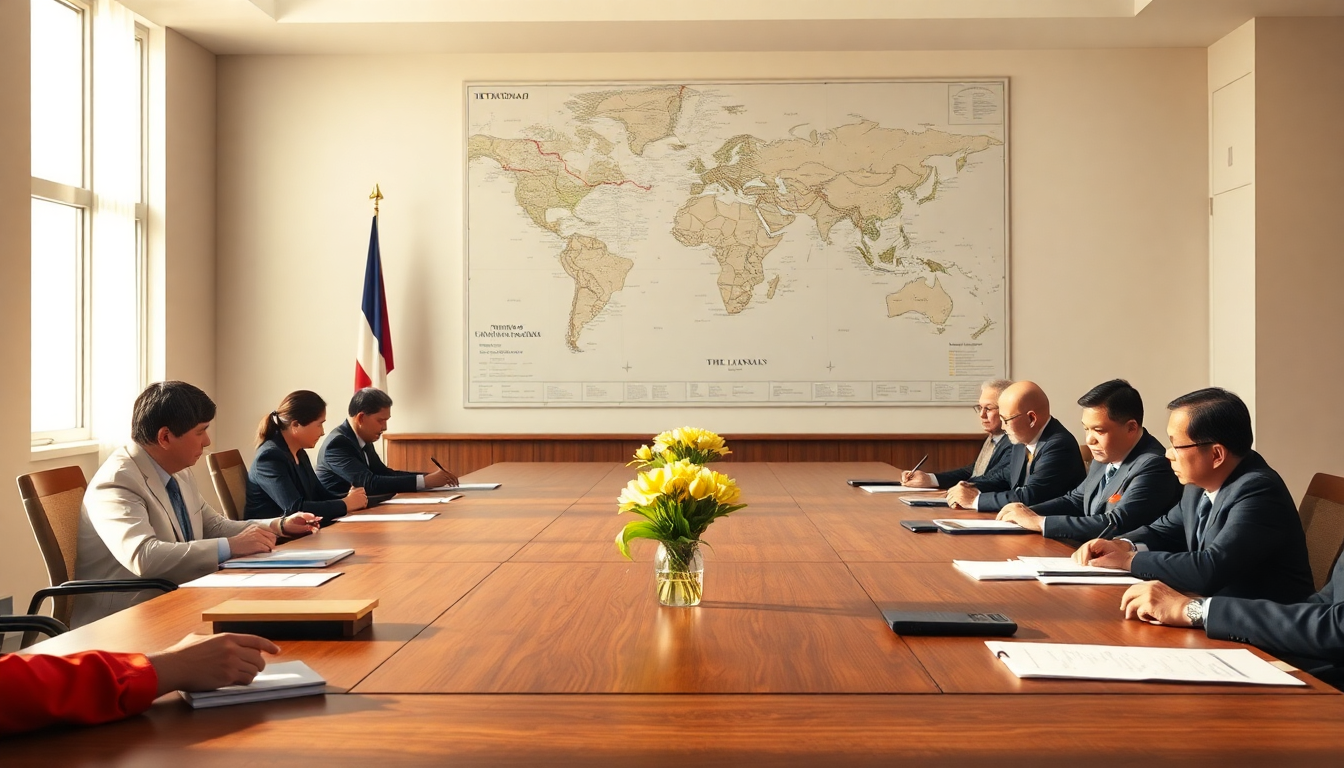Table of Contents
In an unexpected twist, President Donald Trump has been nominated for the Nobel Peace Prize, thanks to his significant role in brokering a ceasefire agreement between Thailand and Cambodia. This conflict had recently escalated tensions along their shared border, leading to a humanitarian crisis that affected thousands.
So, what exactly went down during these negotiations, and why does this matter for the future of diplomacy in Southeast Asia? Let’s break it down.
Ceasefire Agreement: A Breakdown of Events
So, how did this ceasefire come about? After a series of intense negotiations led by President Trump, Thailand and Cambodia finally reached an agreement.
The situation had escalated after a landmine explosion injured Thai soldiers, leading to a blame game between both nations. Just five days of fighting resulted in at least 43 deaths and displaced more than 300,000 people along the border.
It’s pretty staggering, right?
During a critical meeting in Malaysia, representatives from both countries agreed to stop the violence. Trump’s involvement was key—he spoke directly with the leaders of both nations, pushing for peace and emphasizing that military action wasn’t the answer.
His message was straightforward: the U.S. wouldn’t engage in trade discussions while hostilities were ongoing. Talk about setting the tone!
After the ceasefire announcement, Cambodia’s Deputy Prime Minister, Sun Chanthol, expressed his gratitude toward Trump, noting that his intervention was vital for achieving peace.
This acknowledgment underscores a growing sentiment in Cambodia about how crucial U.S. diplomatic support is in resolving regional disputes. It’s a reminder that sometimes, a little help from a friend can go a long way.
Reactions from Regional Leaders
The ceasefire announcement was met with mixed emotions—relief and cautious optimism. Thai Prime Minister Phumtham Wechayachai and Cambodian Prime Minister Hun Manet, both involved in the negotiations, expressed their commitment to keeping the peace moving forward. This collaborative effort marks a significant shift in diplomatic relations, with both nations recognizing that sustained dialogue is essential to prevent future conflicts. Isn’t it refreshing to see leaders come together for a common cause?
Interestingly, Trump’s nomination for the Nobel Peace Prize by Cambodia reflects a broader trend: leaders are starting to see the potential of U.S. involvement in resolving long-standing disputes. Even Israeli Prime Minister Benjamin Netanyahu and some Pakistani officials have thrown Trump’s name into the ring for similar reasons, highlighting his role in fostering peace across various regions. It’s fascinating how one event can ripple through international relations.
However, while this ceasefire is a positive step, we must remain vigilant about the underlying issues that have fueled conflict between Thailand and Cambodia for centuries. As Trump pointed out, the historical context complicates the peace process, but his administration’s proactive approach could pave the way for future diplomatic efforts. Will this be a turning point for lasting peace?
Implications for Future Diplomacy
This ceasefire serves as a vital case study in international relations, showcasing how strategic diplomacy can lead to real results. Trump’s administration has demonstrated a willingness to engage directly with world leaders, which can be both a strength and a potential risk. While aggressive negotiation tactics can yield quick resolutions, they might also alienate other stakeholders in the region. It’s a delicate balance, isn’t it?
We also can’t ignore the economic implications of the ceasefire. Chanthol pointed out that Trump’s administration had previously threatened hefty tariffs on Cambodian goods, which could have severely impacted the country’s key garment and footwear industry. The reduction of tariffs from 49% to 19% reflects a diplomatic balancing act, acknowledging that economic stability is just as crucial as peace initiatives. Talk about making moves!
Looking ahead, the success of this ceasefire will depend on Thailand and Cambodia’s commitment to tackling the root causes of their conflict. Continued dialogue, supported by international partners, is necessary to ensure that this ceasefire evolves into a lasting peace. Will they seize this opportunity, or will history repeat itself? Only time will tell.





